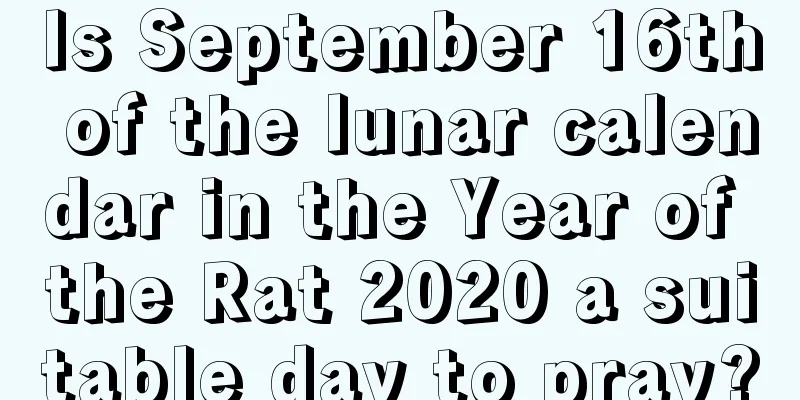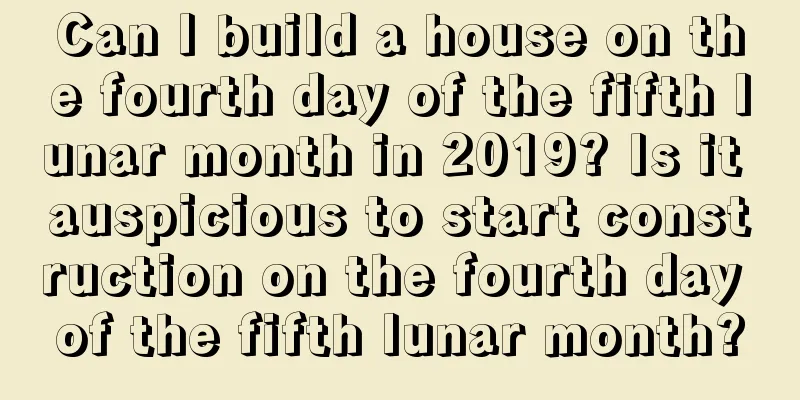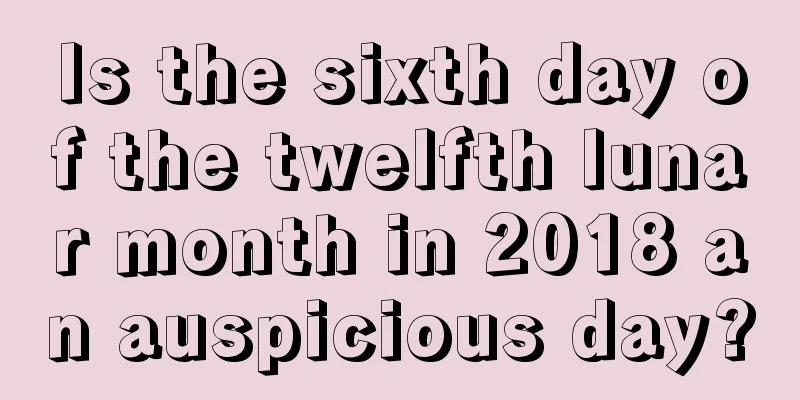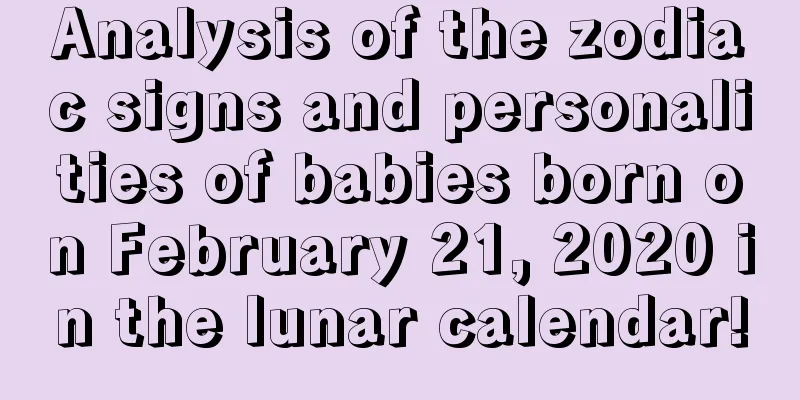Why do we eat Zongzi during the Dragon Boat Festival? What is the origin of eating Zongzi?
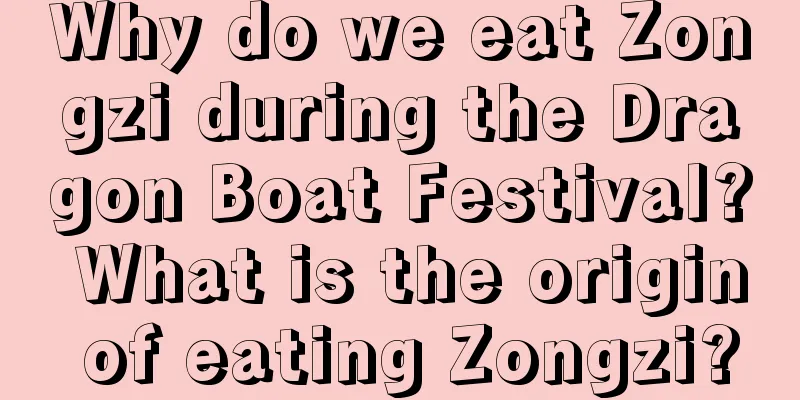
Introduction: Eating rice dumplings is a food custom during the Dragon Boat Festival. Why do we eat rice dumplings during the Dragon Boat Festival? On the fifth day of the fifth month of the lunar calendar, we usher in the new year’s Dragon Boat Festival amidst the aroma of rice dumplings. Let’s follow the Fortune Teller website to take a look at the information about the Dragon Boat Festival in 2018!Why do we eat rice dumplings during the Dragon Boat Festival?"The fragrance of rice dumplings fills the kitchen. The fragrance of wormwood fills the house. Peach branches are inserted on the gate, and when you go out you can see the yellow wheat. It's Dragon Boat Festival here, it's Dragon Boat Festival there, it's Dragon Boat Festival everywhere."This is a folk song describing the Dragon Boat Festival that was very popular in the old days. Generally speaking, the customs of celebrating the Dragon Boat Festival are similar among people from all over the country, and eating rice dumplings on the Dragon Boat Festival has been the same in all parts of China since ancient times. Today's rice dumplings are even more diverse and colorful. Nowadays, rice dumplings in various places are generally made of glutinous rice wrapped in bamboo shells, but the patterns and colors of the fillings depend on the local specialties and customs. The famous ones include longan rice dumplings, meat rice dumplings, crystal rice dumplings, lotus seed paste rice dumplings, candied fruit rice dumplings, chestnut rice dumplings, spicy rice dumplings, sauerkraut rice dumplings, ham rice dumplings, salted egg rice dumplings, etc. People would also cook glutinous rice or steam rice dumplings and throw them into the river to commemorate Qu Yuan. Because people were afraid that glutinous rice or steamed rice cakes would be eaten by fish, they had to be put in bamboo tubes. Later, people started to use bamboo leaves to wrap rice instead of bamboo tubes. Gradually, the custom of eating rice dumplings during the Dragon Boat Festival was formed. The Origin of Eating ZongziRegarding the origin of zongzi, people generally believe that it was to commemorate the great poet Qu Yuan. Qu Yuan, a minister of the State of Chu during the Warring States Period, was patriotic and served his people. However, he was harmed by slander and threw himself into the Miluo River on the fifth day of the fifth month in 278 BC. The people of Chu State searched for Qu Yuan along the river, but were afraid that the fish would eat him, so they filled bamboo tubes with rice and threw them into the river to commemorate him. This is the origin of the earliest Chinese rice dumpling - the bamboo tube rice dumpling.From this custom, people throw rice dumplings into the river on the fifth day of May every year to commemorate Qu Yuan. In "Continued Records of the Strange Things of Qi" written by Wu Jun of the Liang Dynasty in the Southern Dynasties, it is recorded that after Qu Yuan committed suicide by jumping into the river, the people of Chu State mourned him and threw rice stored in bamboo tubes into the water to pay tribute to him every Dragon Boat Festival. It was in the Jin Dynasty that zongzi was officially designated as a Dragon Boat Festival food; in the Tang Dynasty, zongzi had become a popular snack that appeared in the market during festivals and among the people at all seasons; in the Ming and Qing Dynasties, zongzi even became an auspicious food. Summary: The above is all the content about [Why do we eat rice dumplings on the Dragon Boat Festival and the origin of eating rice dumplings]. I hope it can be helpful to everyone! |
>>: Is it auspicious to move house during the Dragon Boat Festival in 2018?
Recommend
Is it suitable to travel far on the first day of the eighth lunar month in 2021?
In traditional Chinese culture, everything has to ...
Is the fate of a boy born on April 27, 2019 in the lunar calendar good or bad?
The birth of a child is a great blessing from God ...
What are the taboos for placing fish tanks at home? What are the Feng Shui considerations for placing fish tanks?
Introduction: Although Feng Shui is invisible and...
Is December 18th of the lunar calendar in 2018 a good day to pray?
China has a splendid history of about 5,000 years....
Analysis of the fate of girls born on January 29, 2021
The fate of girls born at different times is diffe...
What does Great Heat mean? Introduction to the Great Heat Solar Term
Great Heat is also one of the 24 solar terms. So, ...
Is it a good idea to get a haircut on September 24th of the lunar calendar in 2018? What are the requirements for a haircut?
In order to maintain our image in life, haircut ha...
Check the lunar calendar for June 28th, 2018. Is it a good day?
Want to know more about the dates and auspicious ...
What is the zodiac sign of a rat baby born on September 15, 2020? Is his personality good?
Introduction: The zodiac signs of children born on...
Can I move house during Jingzhe in 2021? Is it an auspicious day for moving? When is the best time to move?
Moving is a happy event, moving into a new house a...
Is it a good idea to give birth to a boy on February 19th of the lunar calendar in 2018? Is it an auspicious day?
Everyone has his or her own fortune in life, and i...
Feng Shui Curiosities: The Feng Shui Story of Sanliao Village. Do you know this folk Feng Shui story?
Speaking of folk Feng Shui stories, I believe many...
Is the 16th day of December 2019 suitable for starting renovation?
Is the 16th day of December 2019 suitable for star...
Analysis of the eighth day of the eleventh lunar month in 2021. Can the bed be set up on that day?
The quality of bed installation varies from person...
Is it a good idea to move house on May 19th of the lunar calendar in 2018? Can I move into a new home?
Want to know more about the days and lucky and un...
